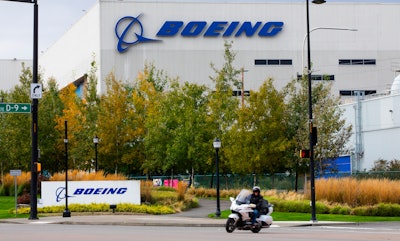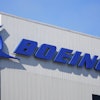
DALLAS (AP) — A federal judge has rejected an effort by families of passengers who died in Boeing 737 Max crashes to reopen an agreement that allowed Boeing to avoid prosecution for fraud in how it won regulatory approval for the plane.
District Judge Reed O'Connor in Fort Worth said that he has sympathy for families of the 346 people who died in two Max crashes, but that federal law doesn't give courts the power to oversee agreements that prosecutors make with defendants.
The court, O'Connor wrote in a decision dated Thursday, "has no occasion to address whether the (settlement) is in fact grossly incommensurate with Boeing's egregious criminal conduct."
The ruling appears to end an effort by family members of some passengers to nullify a January 2021 agreement that Boeing struck with the Justice Department. Boeing agreed to pay a $244 million fine as part of a $2.5 billion settlement in which the government agreed not to prosecute Boeing on a felony fraud charge for misleading U.S. regulators who approved the Max.
Paul Cassell, a lawyer for the families, said they plan to appeal the ruling to the 5th U.S. Circuit Court of Appeals.
"Boeing and DOJ crafted an illegal and secret plea deal without any chance for the families to confer about it, which is required by the Crime Victims Rights Act," Cassell said in a prepared statement. "We are optimistic our appeal will vindicate the families' rights in this case and ensure that never again are deals like this one reached secretly and without victim involvement."
Boeing did not immediately comment.
O'Connor ruled in October that the families met the definition of crime victims and the Justice Department should have told them about the negotiations. That led to his decision to order Boeing to stand for arraignment.
The Justice Department, like Boeing, felt that the judge should not reopen the settlement.
At the Jan. 26 hearing, Boeing pleaded not guilty to fraud, and more than a dozen family members gave emotional testimony about their grief and outrage at Boeing's actions. Some called for Boeing executives to be prosecuted.
Boeing was charged with misleading the Federal Aviation Administration about a key flight-control system on the Max that was implicated in a 2018 crash in Indonesia and a 2019 crash in Ethiopia. Boeing cast blame on two former test pilots, but critics said the low-level employees were scapegoats for corporate wrongdoing.
Sales of the Max stopped after the crashes and a worldwide grounding. Orders have rebounded more recently, however, and the Max is Boeing's best-selling plane. The company announced last month that it will open a fourth Max assembly line late next year because of strong demand.






















